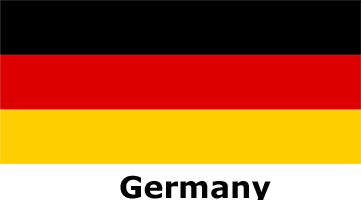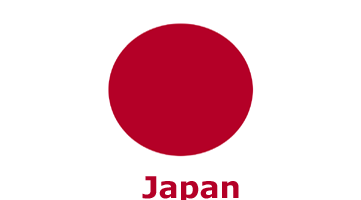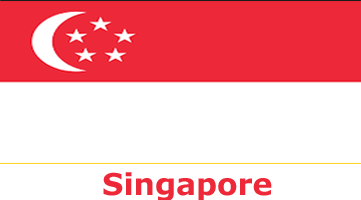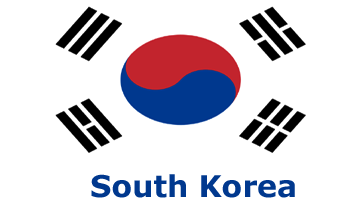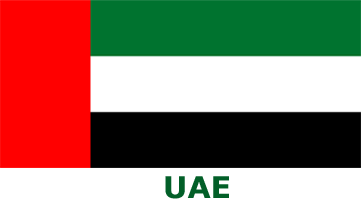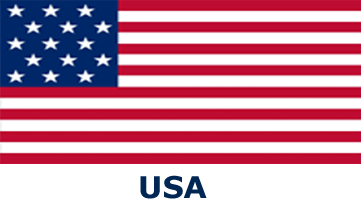
Higher Education Opportunities: Canada
Canada has become a popular destination for Indian students seeking higher education. It is the second most preferred country after the USA. According to the Indian Ministry of External Affairs, around 180,000 Indian students are already studying in Canada in 2022. Many students not only aim to study but also work and settle in the country after completing their studies. Indian students ranging from those who have just completed their Plus Two to research scholars are moving to Canada to study. Canada is a popular destination for people from Kerala who want to migrate abroad, due to its relatively more liberal immigration policies compared to other countries. It is very highly ranked in international measurements of government transparency, quality of life, economic competitiveness, innovation, education and gender equality. It is one of the world's most ethnically diverse and multicultural nations, the product of large-scale immigration.
Primary Information
Canada is the second largest country in the world after Russia, located on the North American continent. It consists of ten provinces and three territories, with Ottawa serving as the capital city. Some of the other major cities in Canada include Toronto, Montreal, Calgary, Edmonton, Winnipeg, Mississauga, Vancouver, Hamilton, and Brampton. Canada is a parliamentary democracy and a constitutional monarchy in the Westminster tradition. The country's head of government is the prime minister, who holds office by their ability to command the confidence of the elected House of Commons. The country is a Commonwealth realm and is officially bilingual (English and French) in the federal jurisdiction.
- Capital: Ottawa
- Language: English and French
- Currency: Canadian dollar ($) (CAD)
- Population: 40,528,39 (Year 2024)
- Density: 4.2/km2
- GDP PPP Total $2.118 trillion[ (2023)
- GDP PPP Percapita: $53,247
Why Canada?
Canada has become a popular destination for people from India and other countries due to several reasons. Canada has the ninth largest economy in the world, Canada's economy is focused on various sectors such as manufacturing, mining, technology, aerospace, energy (oil and gas), tourism, and health. People are attracted to Canada due to the social and professional security it offers as a developed society. It is fascinating that women have better opportunities to work with equality and dignity, and people with disabilities have improved opportunities. Many individuals who wish to move to Canada aspire to obtain a Permanent Residency (PR) or citizenship after their arrival.
Language: Canada has two official languages, English and French, and the language used may vary by province and territory. English is mainly spoken in many provinces such as Ontario, Manitoba, British Columbia, Alberta, Newfoundland, and Labrador, making it more convenient for Indian students than in countries like Germany.
Liberal immigration policies: Canada has liberal immigration policies, and compared to the United States, it offers bright young people from other countries, including permanent residents, the opportunity to live and work in the country. According to Canadian government estimates, more than four lakhs have immigrated to Canada in 2022 alone, with Indians having the second-largest number after China. According to Forbes magazine, the number of Indians immigrating to Canada has tripled compared to 2013, and more than 100,000 Indians are expected to migrate to Canada in 2022 alone. For more information regarding visa laws and immigration in Canada, visit the website of the Canadian government department, Immigration, Refugees, and Citizenship Canada (IRCC).
Eductation for International students
International students are welcome in Canada, from community colleges to world-renowned universities. Most students prefer community colleges, as they offer lower fees and a one-year stay-back option after completing a one-year study program.
Canadian universities offer various subjects, with science being the most popular one among students from other countries. Business management, engineering technology, design, computer science, information technology, psychology, nursing, pharmacy and other humanities and social science subjects are also available. Many Indians work in sectors such as healthcare and IT. Canada also offers great possibilities for research, with many PhD and post-doctoral researchers coming to Canada from other countries.
- QS World University Rankings 2023
- McGill University 31
- University of Toronto 34
- University of British Columbia 47
- University of Alberta 110
- McMaster University 152
- University of Waterloo 154
- Western University 172
- University of Ottawa 237
- University of Calgary 242
- Queen's University at Kingston 246
- Dalhousie University 308
- Simon Fraser University 328
- University of Victoria 359
Fees & Scholorships
In Canada, the tuition fees for undergraduate programs generally range from approximately twenty-two thousand to fifty thousand US dollars per year. For postgraduate programs, the tuition fees can be expected to range from about twenty thousand to thirty-five thousand US dollars per year. It's important to note that the cost of accommodation, food, and other expenses may vary based on the city you reside in.
Things to Consider
When considering further studies in Canada, it is important to keep in mind certain factors. While there are many study and career opportunities, there are also important considerations to keep in mind from the outset.
- When planning to study in Canada, it's important to consider the location of your institution. Canada is a vast country with six time zones and many remote areas. If your school is in one of these isolated areas, it can be challenging to find part-time work or access nearby towns which may be located fifty or a hundred kilometres away. Therefore, it's important to keep this in mind, especially for those who plan to move to Canada permanently after obtaining Permanent Residence (PR).
- Yet another factor to consider, is the weather in this country. It can be quite challenging due to its harshness. During severe winters, the temperature often goes below zero, especially in the northern regions where winters are long and harsh. This region also experiences blizzards and tornado-like phenomena, making the conditions even more difficult to deal with.
- If you wish to pursue a career in certain fields, it may be necessary to obtain licensing or registration. For example, if you are studying a clinical or rehabilitation psychology program, it's important to ensure that your program is accredited. In some cases, completing a program may only qualify you to work in specific provinces or regions. This can be the case in fields such as law and healthcare. It's important to familiarize yourself with these requirements before pursuing your career goals.
- It is crucial to ensure that the educational institutes you plan to attend are not fraudulent. Many individuals aspire to study in Canada, and some choose to enrol even in community colleges. It is worth noting that several people who come to the country acquire jobs, and then remain there long term. However, if you are someone who is passionate about academic subjects and excels in studies, it would be best to avoid community colleges and opt for one of the many top-quality universities in Canada. Studying at these universities offers several advantages, such as excellent academic standards upheld by both teachers and students, as well as numerous opportunities for future growth. Pursuing a degree from a reputable university can also increase your chances of securing better employment opportunities.
- When looking into different agencies for admission into schools or universities, it's important to choose a reputable and trustworthy institute. You can ask students who have already travelled to Canada about their experiences to get a better sense of what to expect. It's important to keep in mind that part-time jobs may not be enough to cover your living expenses and tuition fees. Students are only allowed to work a maximum of 20 hours per week, and anything beyond that is illegal. It's also worth noting that due to factors such as academic workload, travel, and job availability, it may not be possible to work even these hours.
For Reference:
Consulate General of India, Toronto, CanadaDiplomatic missions of Canada in India

